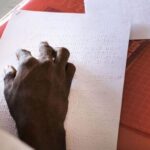Tripoli: Jasour – News Desk
Silvana Al-Laqis, President of the Lebanese Union for Special Needs Individuals and President of the Arab Forum for Special Needs, stated that special needs individuals are the forgotten group in Lebanese society. The government has not addressed their issues, which have accumulated over the years, and the war has added to their suffering. Despite representing between 10% and 15% of the total population in Lebanon, approximately 910,000 people, they face exclusion and marginalization.
Regarding their conditions during the war, Silvana explained in a press statement that the circumstances they endured were extremely harsh. A very limited number of them, not exceeding 2,000, managed to evacuate and displace, while others’ mothers tried to carry them on their backs to escape the horrors of bombing. Meanwhile, others had to stay under the bombing and face their fate.
Silvana clarified to “The 7th day” (AL Youm Al-Sabea) that the lack of infrastructure to accommodate special needs individuals deepened the war’s impact on them, whether in terms of care, providing their needs for medicine and food, or evacuation processes. There were no evacuation centers free of architectural barriers suitable for their special conditions, and shelters refused to accept special needs individuals without companions, which was a harsh measure for them.
Silvana stated that the state failed to provide the necessary healthcare services for special needs individuals due to weak resources and capabilities for years. Therefore, they were only offered primary treatments, while advanced injuries required significant costs borne by the special needs individuals without state support.
She added that since the beginning of clashes in the south on October 8, 2023, the union addressed the Lebanese government, requesting the establishment of a unit to integrate special needs individuals within the Disaster Management Committee, but there was no response. Despite Lebanon being one of the countries that ratified the International Convention on the Rights of Persons with Disabilities, which mandates that governments reconsider existing facilities to be ready to serve them during disasters, ensuring equality among all citizens.
Silvana emphasized that during disasters and crises, special needs individuals pay higher prices than others, as the number of victims among them is four times that of non-disabled individuals. In times of recovery, their needs are always absent from the state’s agenda.
Silvana took the opportunity to try to draw international attention to special needs individuals in Gaza, who are attacked brutally and unable to protect themselves in an inhumane scene, in addition to those who have been rendered disabled by the war.
Silvana continued, saying that as a union, they have work teams across Lebanon to try to provide assistance and find shelters for those whose homes are in shooting areas. They coordinate with the government to meet their needs and have also established public kitchens to distribute food to families who managed to evacuate. Notably, the food preparation was done by special needs individuals, in a determination to challenge all harsh conditions.






